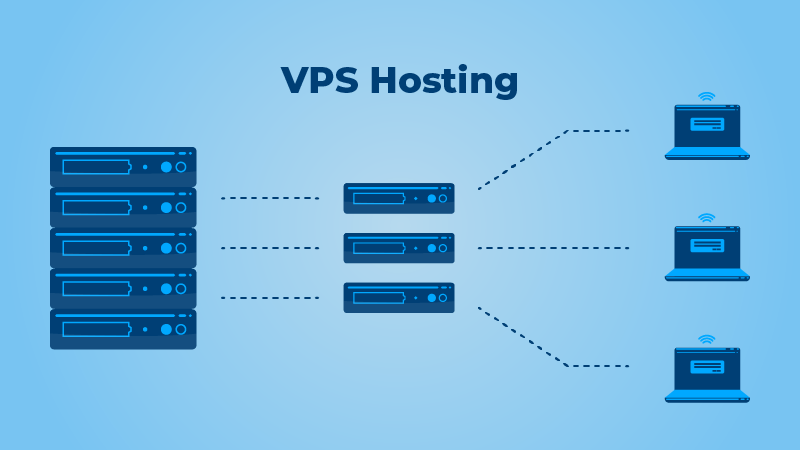Buy VPS: complete overview

When considering VPS hosting, it's essential to assess your specific hosting requirements, technical expertise, budget, and growth plans. VPS hosting provides a balance between shared hosting and dedicated server hosting, making it a versatile and scalable option for various use cases.
-
OS Windows 2019 or 2016
-
Low Ping to Best Data-centers
-
NVMe fast disks
-
You may use MS SQL or IIS
-
Work with MetaTrader
-
Start your own Proxmox Server
Full money back guarantee 7 days
Buy VPS for good price:

VIRTUAL-4
up to 5 Ghz cores speed
4 Gb RAM
60 Gb SSD disk
Full system admin support
Traffic 20Tb

VIRTUAL-6
up to 5 Ghz cores speed
6 Gb RAM
80 Gb SSD disk
Full system admin support
Traffic 20Tb

VIRTUAL-8
up to 5 Ghz cores speed
8 Gb RAM
60 Gb SSD disk
Full system admin support
Traffic 20Tb

VIRTUAL-10
up to 5 Ghz cores speed
10 Gb RAM
120 Gb SSD disk
Full system admin support
Traffic 20Tb

VIRTUAL-15
up to 5 Ghz cores speed
15 Gb RAM
160 Gb SSD disk
Full system admin support
Traffic 20Tb

VIRTUAL-20
up to 5 Ghz cores speed
20 Gb RAM
180 Gb SSD disk
Full system admin support
Traffic 20Tb
- Windows 2016 or 2019 pre-installed
If you need more powerull configuration, check Dedicated Servers prices:
Virtual Private Server (VPS) hosting is suitable for a wide range of individuals and businesses, depending on their specific hosting needs and requirements. Here are some scenarios in which buying a VPS can be beneficial:
-
Growing Websites: If your website is outgrowing the resources and performance capabilities of shared hosting, moving to a VPS can provide the necessary resources and scalability to accommodate increased traffic and content.
-
Web Developers and Designers: Web developers and designers often use VPS hosting to create, test, and deploy websites and web applications for themselves or their clients. VPS hosting offers greater control and customization options.
-
E-commerce Businesses: Online stores and e-commerce websites require reliable and scalable hosting to handle product listings, secure transactions, and traffic spikes during sales and promotions.
-
Medium-Sized Businesses: Medium-sized businesses with multiple websites, applications, or online services may benefit from VPS hosting to centralize their hosting needs, improve performance, and maintain better control over their server environment.
-
Custom Software and Applications: Organizations that develop or run custom software and applications may prefer VPS hosting to configure their servers to match the specific requirements of their software.
-
High-Traffic Websites: Websites with high traffic volumes, such as news sites and forums, often choose VPS hosting for better performance and the ability to handle increased user activity.
-
Bloggers and Content Creators: Bloggers and content creators who want more control over their website's performance, security, and customization options may opt for VPS hosting.
-
Reseller Hosting: Individuals or businesses looking to offer web hosting services to others can use VPS hosting as a foundation for reseller hosting, allowing them to host multiple client accounts.
-
Development and Testing Environments: VPS hosting is ideal for creating isolated development and testing environments to work on software projects, conduct quality assurance testing, and experiment with configurations.
-
Resource-Intensive Applications: Applications that require dedicated resources, such as databases, content management systems (CMS), and data analytics platforms, often perform better on VPS hosting.
-
Improved Security: Organizations with specific security requirements or compliance needs may opt for VPS hosting to implement advanced security measures and maintain greater control over server security configurations.
-
VPN and Remote Desktop Services: VPS hosting can be used to set up virtual private networks (VPNs) or remote desktop services, enabling secure remote access to a private network or desktop environment.
-
Gaming Servers: Gamers and online gaming communities often use VPS hosting to host game servers for multiplayer games, ensuring low latency and customizable server settings.
Buy VPS vs Rent VPS
"Buy VPS" and "Rent VPS" are often used interchangeably, and both essentially refer to the same concept in the context of virtual private server (VPS) hosting. When you acquire a VPS hosting plan, you are essentially renting or leasing a virtual server with dedicated resources from a hosting provider. Here's a breakdown of the terminology:
-
Rent VPS (Virtual Private Server):
- The term "Rent VPS" suggests that you are subscribing to a VPS hosting service on a recurring basis. You pay a monthly or annual fee to use the virtual server and its resources. This is the most common way to access VPS hosting.
-
Buy VPS (Virtual Private Server):
- The term "Buy VPS" is used less frequently but implies the same concept. When you "buy" a VPS, you are essentially making a purchase to use the VPS hosting service. However, this purchase typically covers a predefined period, such as a month or a year, after which you need to renew or extend your subscription.
In both cases, you are not purchasing the physical hardware of the server itself but rather subscribing to a hosting service that provides you with a virtualized server environment with dedicated resources.
When deciding between "buying" or "renting" a VPS, it's important to consider the following factors:
-
Subscription Period: Determine whether you want to commit to a monthly or annual subscription. Some providers offer flexibility in choosing the billing cycle.
-
Resource Requirements: Assess your resource needs (CPU, RAM, storage) and choose a VPS plan that aligns with your requirements.
-
Budget: Consider your budget and how it aligns with the monthly or annual costs associated with your chosen VPS hosting plan.
-
Scalability: Look for providers that offer scalability options, allowing you to adjust resources as needed. This can be especially important if your requirements change over time.
-
Support and Service Level Agreements (SLAs): Evaluate the level of support and SLAs provided by the hosting provider. This includes factors like response times, uptime guarantees, and customer support quality.
In summary, whether you "buy" or "rent" a VPS, the fundamental process involves subscribing to a VPS hosting plan offered by a hosting provider. Your choice between the two terms is often a matter of semantics, and the important factors to consider are your hosting needs, budget, and the hosting provider's offerings.

FAQ
What is VPS Hosting?
- VPS hosting stands for Virtual Private Server hosting. It's a hosting service that provides a virtualized server environment with dedicated resources within a larger physical server.
How Does VPS Hosting Work?
- VPS hosting works by virtualizing a physical server into multiple isolated virtual servers. Each VPS has its own dedicated resources, including CPU, RAM, and storage, while sharing the same physical server.
Why Choose VPS Hosting?
- VPS hosting offers more control, customization, and performance compared to shared hosting. It's suitable for websites and applications with specific resource needs.
What Are the Benefits of VPS Hosting?
- Benefits include dedicated resources, enhanced performance, better security, customization options, and scalability to accommodate growing needs.
Who Should Consider VPS Hosting?
- VPS hosting is suitable for businesses, developers, e-commerce sites, and anyone needing more control and resources than shared hosting offers.
How Does VPS Hosting Differ from Shared Hosting?
- VPS hosting provides dedicated resources, while shared hosting shares resources among multiple users. VPS offers better performance and customization.
What Factors Should I Consider When Choosing a VPS Hosting Plan?
- Consider resource requirements, budget, scalability, support, uptime guarantees, and the hosting provider's reputation.
Do I Need Technical Expertise to Manage a VPS?
- Basic server management skills can be helpful, but many hosting providers offer managed VPS plans with varying levels of technical support.
Can I Upgrade or Downgrade My VPS Plan?
- Many providers offer scalability options, allowing you to adjust resources as your needs change.
Is VPS Hosting Secure?
- VPS hosting is inherently more secure than shared hosting due to isolation. However, it's essential to implement security measures and keep software up to date.
How Do I Choose the Right VPS Hosting Provider?
- Research providers, read reviews, compare features, evaluate support, and consider your specific needs and budget when selecting a hosting provider.
Can I Install Custom Software on My VPS?
- Yes, you have full control over your VPS and can install custom software and applications based on your requirements.
What Are the Billing Options for VPS Hosting?
- Most providers offer monthly and annual billing options. Choose the one that suits your budget and preferences.
What Are Service Level Agreements (SLAs) in VPS Hosting?
- SLAs outline guarantees on uptime, performance, and support response times. Review them to understand what's included in your hosting plan.
Can I Transfer My Website to a VPS Hosting Environment?
- Yes, you can migrate your website or applications from another hosting environment to a VPS. Hosting providers often offer migration assistance.
Is VPS Hosting Environmentally Friendly?
- VPS hosting can be more eco-friendly than dedicated servers because it allows for efficient resource allocation and reduced energy consumption.
What Is the Difference Between Managed and Unmanaged VPS Hosting?
- Managed VPS hosting includes server management and technical support, while unmanaged VPS hosting requires users to handle server administration tasks themselves.
How Can I Secure My VPS Hosting Environment?
- Implement security best practices, including firewalls, regular updates, strong authentication, and monitoring, to enhance the security of your VPS.
Can I Use a VPS for Hosting Multiple Websites?
- Yes, you can host multiple websites or applications on a single VPS, depending on your resource allocation and configuration.
What Are the Steps to Buy VPS Hosting?
- Research providers, compare plans, select a plan that suits your needs, place an order, configure your VPS, and launch your hosted services.